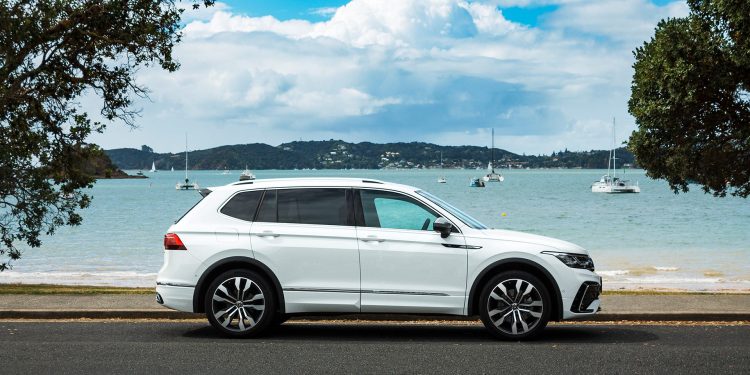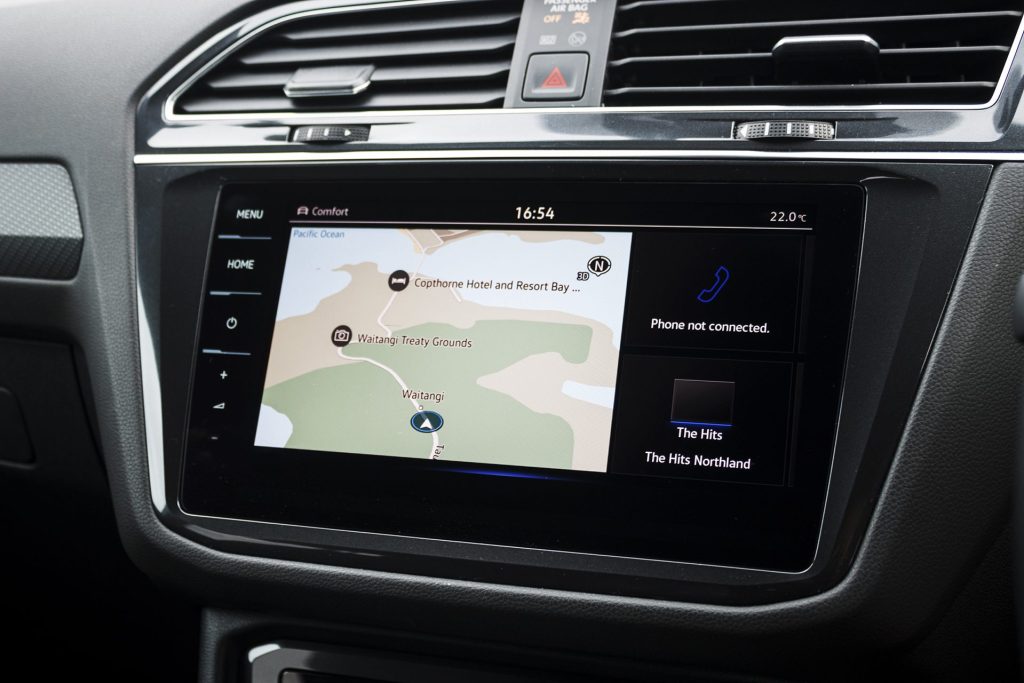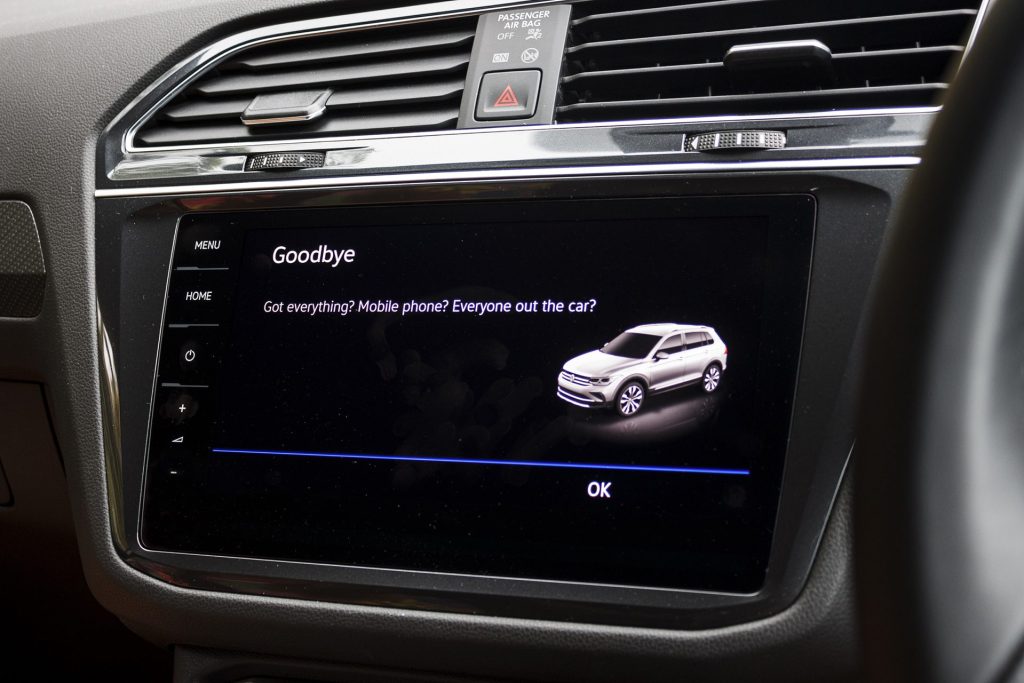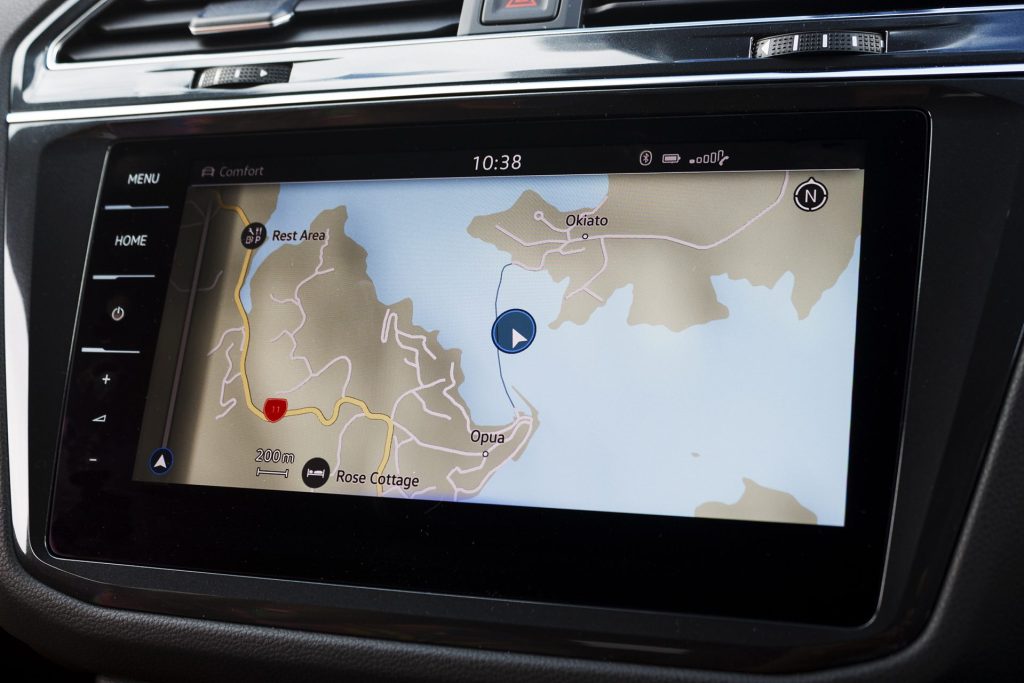2021 Volkswagen Tiguan Allspace R-Line review
Words/Photos: Kyle Cassidy
The time for Volkswagen’s Tiguan Allspace to be rejuvenated is upon us, the refreshed model looking better for its makeover. While some facelifts are mild, others major, this one is sort of in between, with a once-over up front and inside while more bits and bobs have been added to the spec list for all models.
The Allspace’s visage adopts the same treatments doled out to the regular Tiguan, with a rearranged grille, bumper and lights to give it a wider, more grounded appeal. Inside, the update is reasonable too with a new infotainment set-up, ventilation controls and steering wheel.
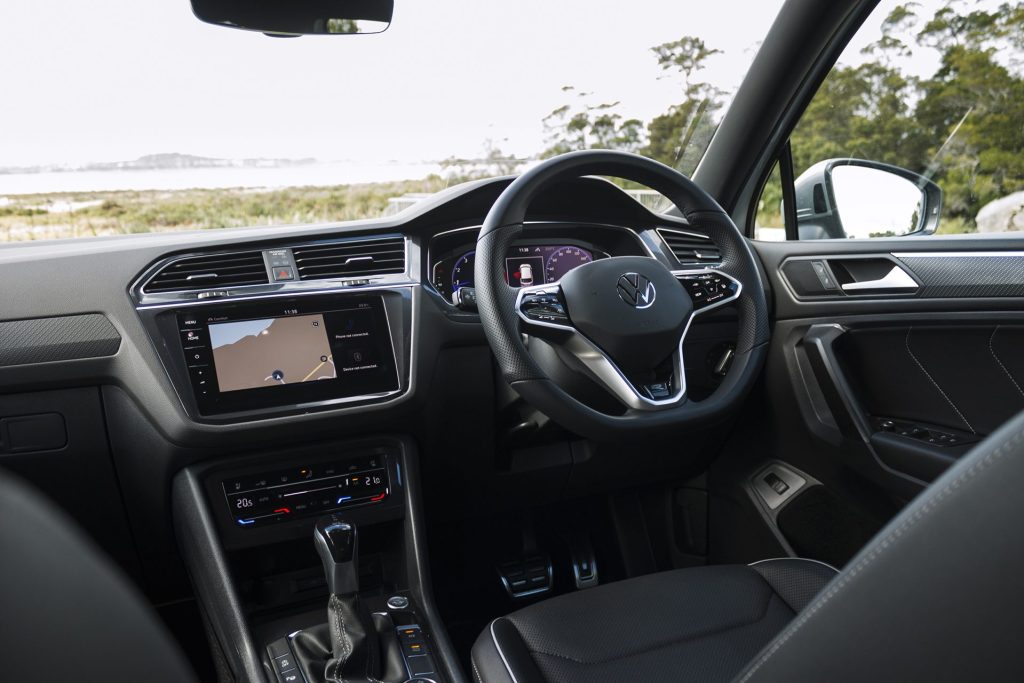
The Allspace line-up starts at $49,990 for the ‘Life’, a front driver utilising the 110kW/250Nm 1.4 turbo and with CO2 of 191g/km (equating to a claimed average of 8.5L/100km), it’s cost-neutral under the Clean Car Discount. Then there’s a jump up to the $63,990 Style, but it adds more kit and a 2.0-litre turbo, good for 132kW and 320Nm, applied to the road via ‘4Motion’ AWD. It outputs more CO2, 216g/km (9.5L/100km), meaning it pays $1730 in naughty fees.
Topping the range is the $73,990 R-Line, not to be confused with a genuine R; it’s more to do with styling than sports. It does however have a fruity version of the company’s 2.0-litre, with 162kW and 350Nm. Consumption is rated at 9.4L/100km according to the WLTP fuel test figures, so with CO2 output of 214g/km, it has fees of $1610 to pay.
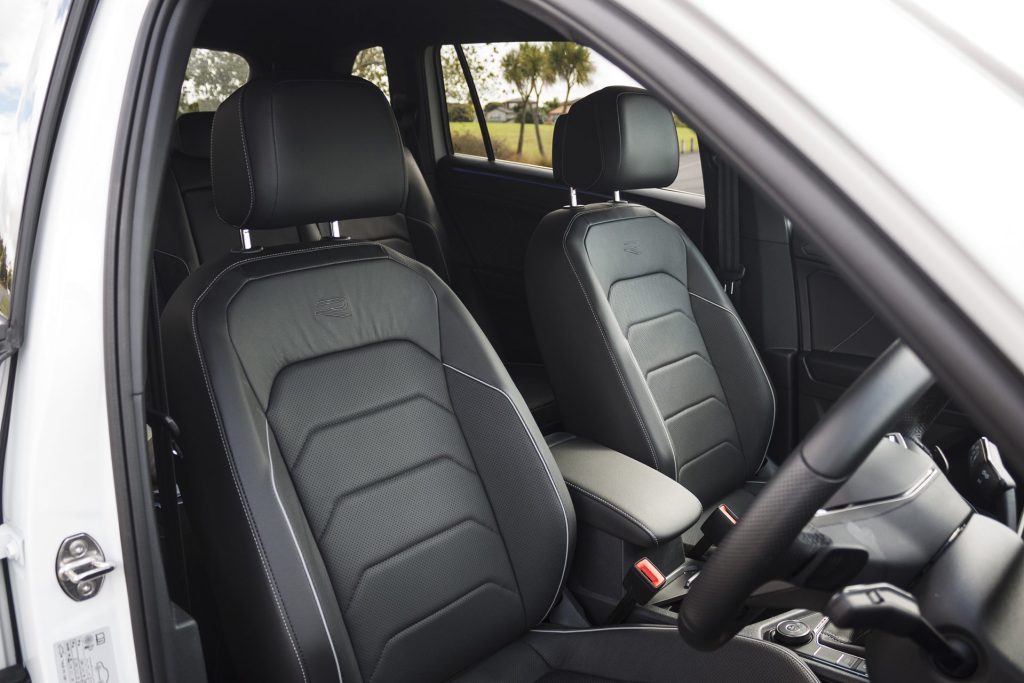
Where is the plug-in you ask? Well, head to VW NZ’s website and you’ll find a link to the electric models page. Here you’ll discover that VW’s pure BEVs are all still T.B.C for NZ, the plug-in hybrid front looks a little brighter with a Multivan dotting down last week and Touareg R due by the end of the year.
However, the arrival of the plug-in Golf and Tiguan are still unconfirmed, while no electric version of the Allspace exists. The Tiguan PHEV, for reference, uses a 1.4-litre TSI petrol engine and an electric motor offering a combined output of 180kW and, with a 13kWh battery pack, it delivers up to 50km of electric driving.
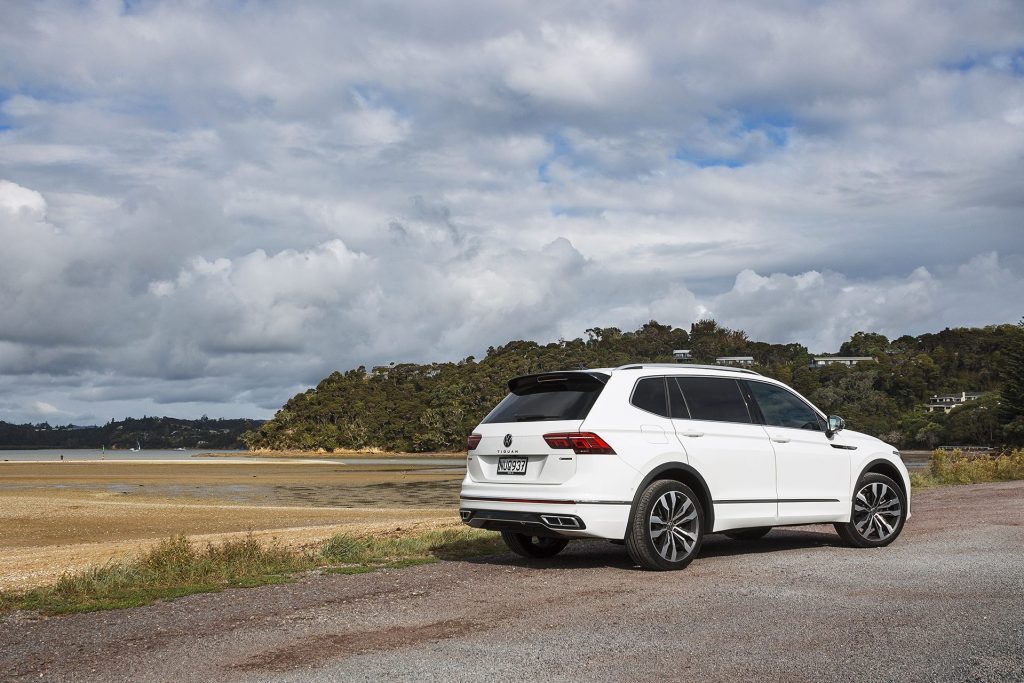
But anyway, the Allspace, which on a global scale now outsells the regular Tiguan, has 110mm added to the wheelbase, allowing the engineers to squeeze a pair of occasional pews in the boot. In terms of the space offered, and the access to them, these seats are best reserved for the school kids.
Being a Euro-centric model, Allspace is big enough but not the largest of the seven seaters. Those made with the US market in mind (i.e Sorento and Highlander, the hybrid versions of which get a rebate) offer more space, particularly across the cabin and with more room between the rows as well. Still, our primary school aged gremlins did okay in the back.
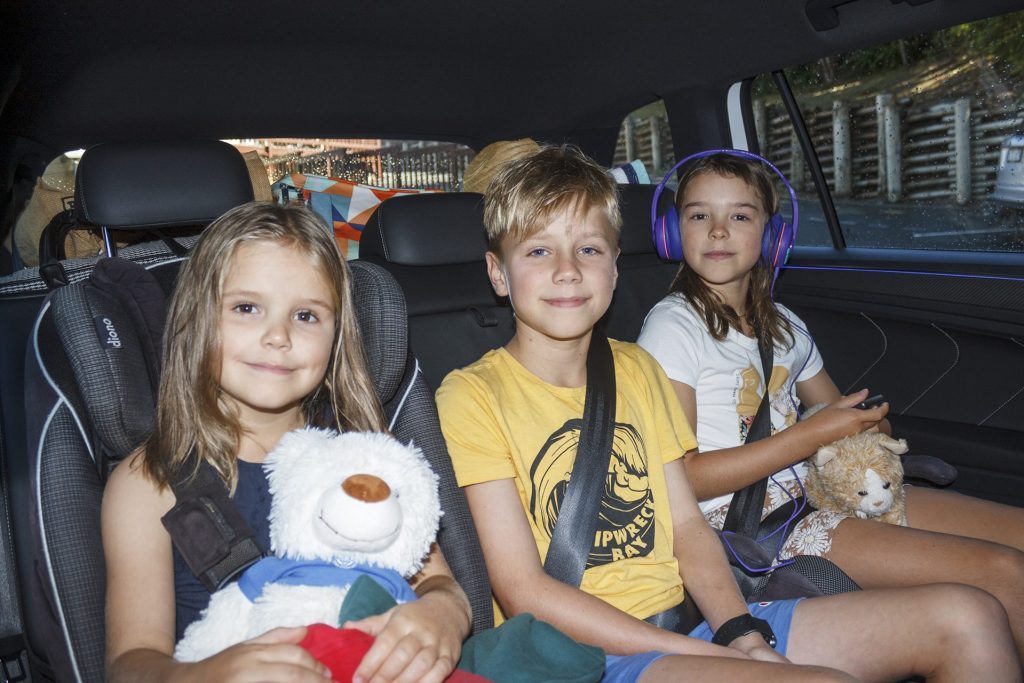
The middle bench of the Allspace has the usual versatility of a seven seater, being split 60/40, and sliding forward to give those rear-most passengers some much needed knee room. The boot you’d call big, rated at 700L by VW, though this must be with stuff piled to the roof. Need more? Easily accessible levers in the hold area release the second-row seats, and then you have a claimed 1755L to fill. The tow rating for this Allspace is stated at 2500kg.
Part of the upgrade includes additional safety minders for all variants, with an around-view camera, front and rear parking sensors and a parallel park assistant all standard. The adaptive cruise is now more active, with a degree of self steering on motorways and while the lane keeping function on main highways is tolerable, it can be a pest on winding roads as it tries to adjust your line midcorner.
Touch sensitive pads replace the usual buttons on the new steering wheel to control aspects of the infotainment system, digital dash and active cruise. These can require a deft caress and can be easy to bump accidentally (we kept switching on the heating function for the steering wheel). And we had the entire left block of buttons ‘freeze’ a few times, rendering the cruise control inoperative. They look pretty however, as do the revised ventilation controls. These also have a touch-sensitive interface but aren’t too vexing in operation; getting the air to flow to your liking is still a straightforward procedure. You can fiddle about with a few things in the infotainment system to customise the view as you see fit, and you can talk to it (let’s call that a work in progress) while ambient lighting makes an appearance.
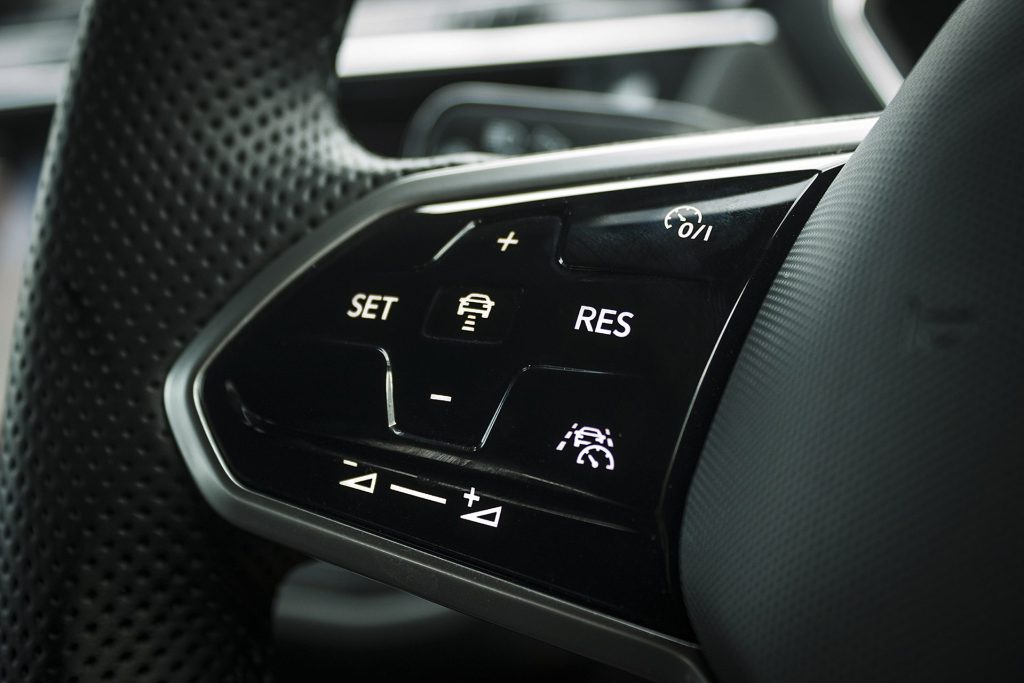
There’s decent cabin storage, the door pockets (nicely lined) are large, the cup holders adjust to accept both a long black and a big water bottle, while even the glove box is useful. The seats, while a tad firm, are supportive, and remain comfortable after a few hours of driving.
The long term fuel use average for this tester was sitting at 10.2L/100km. After a reset, a cruise to Northland and back registered 8.7L/100km, not bad for something with five bods on board and the usual excess of kit in the boot. Its open road gait is quiet and comfortable, the ride on its big alloys not too abrasive, even over Northland’s storm-ravaged byways.
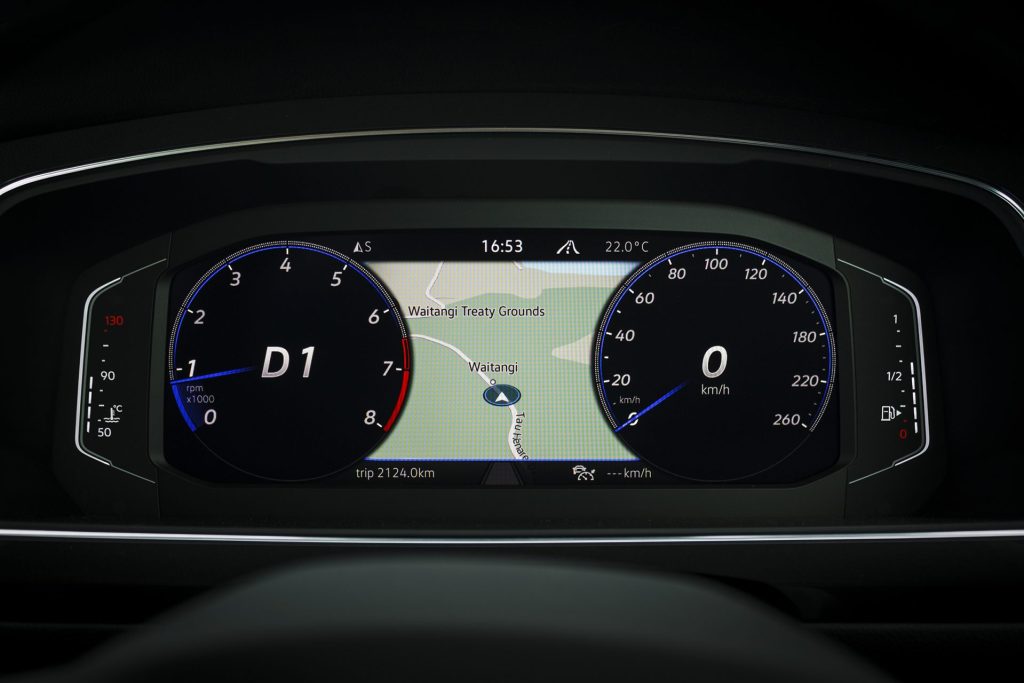
Of the myriad drive modes, we spent more time in Eco than usual, conscious of fuel reserves. This sees you coasting along when you’re off the gas, the seven-speed twin-clutch selecting neutral, though it quickly rengages should you brake. It’s well devised this Eco mode as it doesn’t kill the power, still with plenty in reserve for a quick overtake. Naturally, it’s more responsive in the Normal setting, and better still in Sport, but Comfort works just fine too. Being a VW, it’s proficient on the move, steering faithfully through the bends, the body roll tamed and the understeer countered by good rubber and torque vectoring when you go nuts.
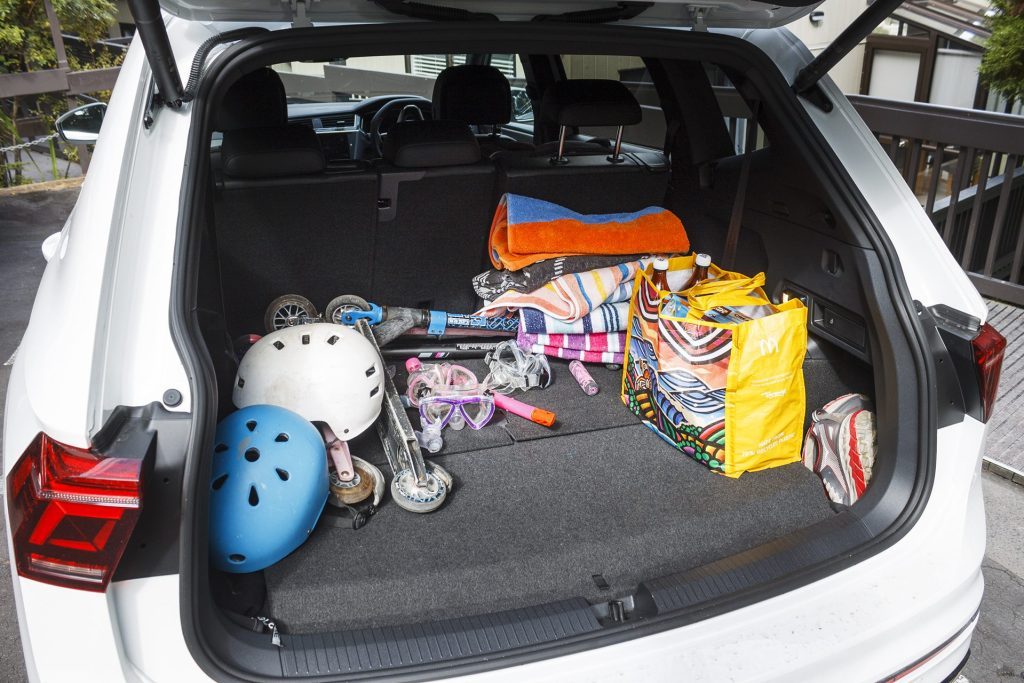
Round town, the 2.0-litre serves the R-Line well. There’s an idle/stop system that can add a moment of hesitation off the mark but then it’s onward, the torque rolling out strongly in the 2000-3000rpm zone. The twin-clutch auto seems improved since we last drove a Tiguan, engaging quickly from a start with less slurring and is much better at hill starts. This is particularly telling when reversing uphill, being smoother and it’s easier to modulate your speed. Over city streets, the ride is acceptable thanks to those constantly adaptive dampers the R-Line gains and, with quick ‘progressive’ steering, it’s easy to turn while the around-view camera helps line it up in the parks.
The update polishes an already solid offering, and the Allspace has that certain panache which VW products possess. While similarly priced to other top-of-the-line seven-seaters, a lack of electrified options could have some looking elsewhere to the likes of the Highlander or Sorento hybrids.
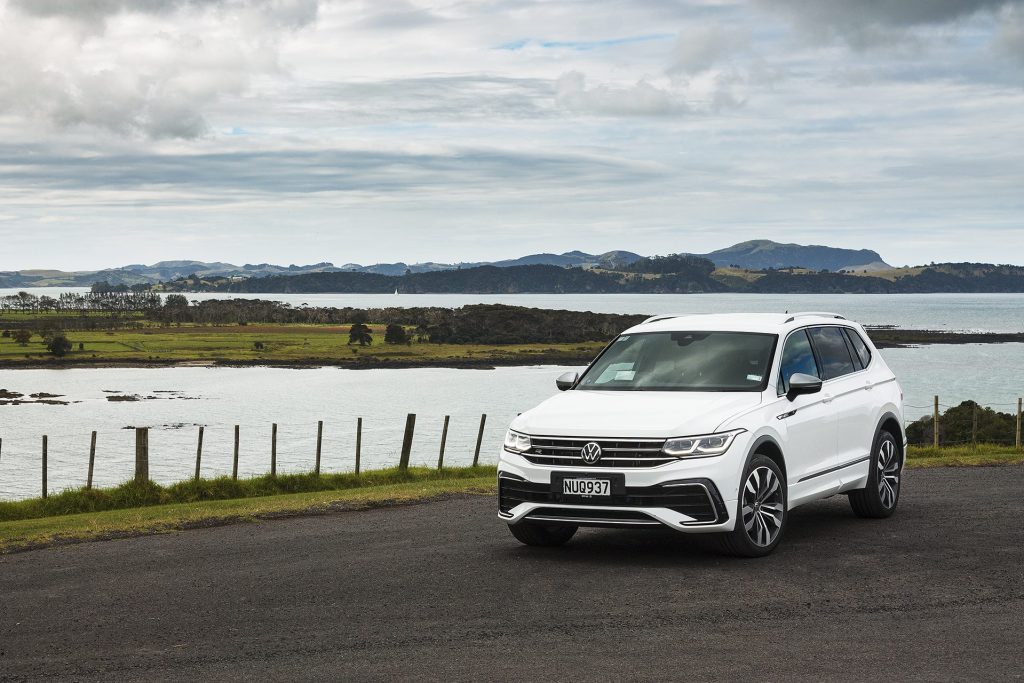
| Model | VW Tiguan Allspace R-Line |
| Price | $73,990 |
| Clean Car Discount | Fee + $1,610 |
| Engine | 1984cc, IL4, T, DI |
| Power/Torque | 162kW/350Nm |
| Drivetrain | 7-speed twin clutch, AWD |
| Fuel Use | 9.4L/100km |
| C02 Output | 214g/km |
| 0-100km/h | 6.88sec |
| 80-120km/h | 4.6sec (130m) |
| 100-0km/h | 36.78m |
| Stability systems | ABS, ESP, TV |
| Safety | AEB, ACC, BSM, LDW, RCTA, ALK, AHB |
| Luggage Capacity | 700-1755L |
| Tow rating | 750kg (2500kg braked) |
| Service intervals | 12 months/15,000km |
| Service Plan | $1645, 3yrs/45,000km |
| Warranty | 5 years/150,000km |
| ANCAP rating | 5 stars (2017) |
| Weight | 1698kg (claimed) |


